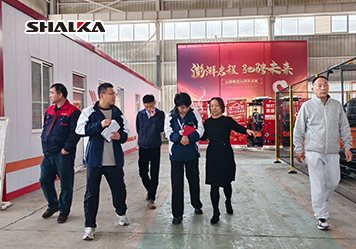In recent years, with the in-depth implementation of the rural revitalisation strategy, rural land remediation has become an important means of improving land use efficiency and improving the rural environment. In this process, small excavators, with their unique advantages, play an important role in rural land remediation projects, and have become an important force in promoting rural revitalisation.
Small excavators are compact and flexible in operation, which are very suitable for operating in the narrow terrain and complex construction environment in rural areas. Compared with traditional large excavators, small excavators can enter the construction site more easily, reducing the impact on the surrounding environment, while also reducing construction costs. This makes mini excavators ideal for rural land remediation projects.
In rural land remediation projects, small excavators can efficiently complete tasks such as land levelling, ditch excavation and road construction. They can excavate precisely according to the width and depth of the project design, ensuring the quality and progress of the project. Meanwhile, small excavators can also be equipped with different working devices, such as crushing hammers and clamps, to meet different construction needs. These features make mini excavators highly flexible and adaptable in rural land remediation projects.
Take a certain region as an example, the region has been vigorously promoting rural land improvement work in recent years, especially investing a lot of manpower and material resources in farmland renovation and village improvement. In order to improve the construction efficiency and quality, the region has introduced a number of small excavators. These mini-excavators have played an important role in projects such as land levelling, ditch digging and road construction. Through the use of mini excavators, the land in the region has become more level and fertile, and the irrigation and drainage systems have been improved, effectively improving the efficiency of agricultural production and the quality of life of farmers.
In addition to their application in specific projects, mini excavators also play an important role in the planning and design stages of rural land remediation projects. They can provide accurate basic data and reference basis for engineering design through on-site survey and data collection. At the same time, mini excavators can also provide reasonable suggestions and programmes for engineering design based on factors such as topography and soil conditions. These tasks help to improve the accuracy and scientificity of engineering design and lay a solid foundation for the successful implementation of rural land remediation projects.
In conclusion, small excavators have an irreplaceable role in rural land remediation projects. Their compactness and flexibility, high efficiency and stability, as well as multifunctionality make them an ideal tool for rural land remediation. With the in-depth promotion of rural revitalisation strategy and the continuous improvement of rural land remediation work, I believe that small excavators will play a greater role in the future construction of rural areas, contributing more power for agricultural development and improvement of farmers’ lives.



